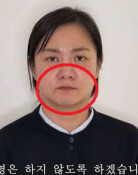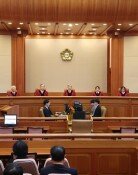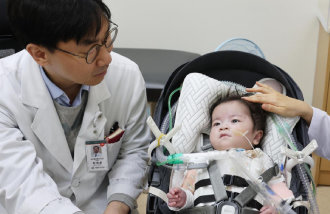Korea bans import of all fisheries products from 8 Japanese prefectures
Korea bans import of all fisheries products from 8 Japanese prefectures
Posted September. 07, 2013 05:55,
The Korean government is set to completely ban import of fisheries products produced in eight prefectures in Japan, including Fukushima Prefecture. The government will also conduct inspection of radioactive cesium content in fisheries produce from other regions of Japan as well, and if even tiny volume of radioactive material is found, it will require additional inspection certificates, thus effectively halting import.
Following a meeting of related ministries presided over by Prime Minister Chung Hong-won on Thursday, the government held a consultative meeting with the ruling party, and finalized this and other plans on Friday. The regions from which import of fisheries will be banned are Fukushima, Miyagi, Tochigi, Ibaraki, Gunma, Chiba, Iwate, and Aomori prefectures.
Import ban will take effect from Monday. No special measures will be taken for fishers that have been already imported. The government will also toughen the standards for radioactive quarantine inspection on Japanese fisheries produce. Thus far, Japanese fisheries and livestock products have been imported and distributed in Korea if the cesium content level is below the standard (100 Becquerel per kilogram). But from now, even if cesium content below the permissible level is detected, the government will require additional inspection certificates, including plutonium and strontium content levels.
The government authority judges that if this case happens, the quarantine period gets extended by up to six weeks, which will effectively force importers to return the produce in question. According the Food and Drug Safety Ministry, Japanese fisheries products that are found to contain cesium content below the standard level over the past three years amount to a total of 131, including nine cases detected this year.
The government has thus far banned import of 50 kinds of fisheries, rather than completely banning import from the eight prefectures. The government is apparently taking the special measure in consideration of mounting demand in Korea for halting of fisheries import from Japan after contaminated water was released from the nuclear plant accident site in Fukushima.
Since August 19, hundreds of tons of radioactive contaminated water has been flowing into the Pacific Ocean per day, said Chung Seung, Food and Drug Safety Minister. Judging that we cannot predict future situations only based on data released from Japan, we have taken special measures.







